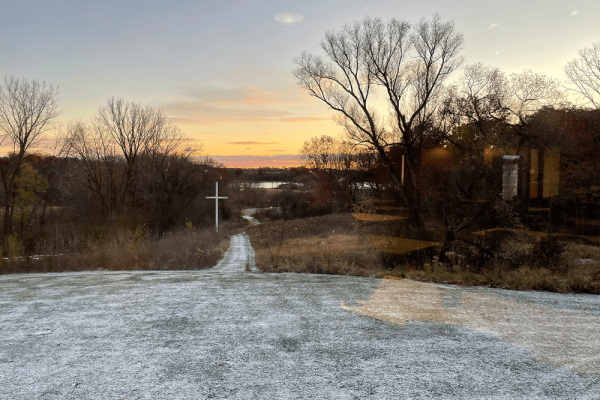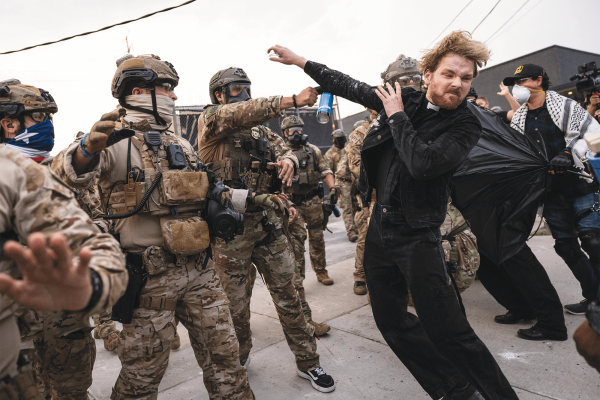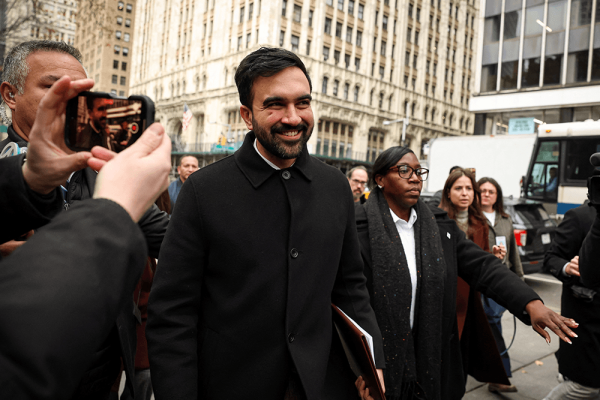In the midst of the Time’s Up movement, we agree that now is the time for equality and to end sexual and gender-based violence once and for all.
While the entertainment industry is doing a great job of raising awareness, other groups need to step up and enact change. A critical group that must be involved is the faith community.
Faith leaders are often the first points of contact for victims of domestic violence, as nearly 84 percent of the world’s population affiliate with a religion. For women who are religious, one of the first responses to abuse by an intimate partner is to seek help from a pastor or other faith leader. This initial disclosure is critical; research consistently shows that the advice of the first person a victim tells will in large measure determine her next steps.
But faith leaders often aren’t equipped to handle such situations, which can hinder rather than help. The allegations against former White House staff secretary Rob Porter shine a light on how important faith leaders are in such cases. Porter’s ex-wives, Colbie Holderness and Jennifer Willoughby, said they turned to clergy but didn’t receive the support they needed.
“Both of us had a hard time getting them to fully address the abuse taking place. It wasn’t until I spoke to a professional counselor that I was met with understanding,” Holderness wrote in the Washington Post last month.
Unfortunately, their experiences are the norm rather than the exception.
According to Broken Silence: A Call for Churches to Speak Out*, an overwhelming majority — 74 percent — of faith leaders surveyed underestimate the level of sexual and domestic violence experienced within their congregations, leading to infrequent discussions of the issue from the pulpit as well as a lack of appropriate support for victims. Additionally, only 56 percent of pastors said they were adequately familiar with local resources that specifically address sexual and domestic violence.
Distressingly, the survey also found that even pastors who have handled incidents of violence may not be offering appropriate advice to those who are suffering, potentially doing more harm than good.
Willoughby told CNN’s Anderson Cooper that her bishop cautioned her against filing a temporary protection from abuse order because of the impact it could have on Porter’s career.
“I hold no ill will towards that bishop. I think he was making the decision the best that he could with the information that he had,” Willoughby said. “But, ultimately, I think it shows some of the nuances of what someone goes through when they’re in an abusive relationship, that because I was unable to clearly articulate the fear that I had, and to clearly articulate even some of the more extreme forms of emotional or verbal abuse that I was experiencing, he really didn’t understand the severity of the situation.”
A year-long qualitative study on religious leaders’ understandings and responses to issues of sexual and gender-based violence followed the Broken Silence report and was conducted by the Science, Religion, and Culture Program at Harvard Divinity School with the support of IMA World Health and We Will Speak Out U.S. The study, Interrogating the Silence, found that religious leaders have little support and little training in dealing with issues related to gender-based violence. And, in most cases, there are weak systems and procedures in place to aid their thinking and decision-making, and they are generally ill-informed about available resources.
In 2018, there is no excuse for being uninformed. As we engage in the Time’s Up and #metoo movements, the faith community must do better. Faith leaders must seek out tools and training to ensure they can respond to abuse in the appropriate ways. They must make houses of worship a safe place where people can find the support and guidance they seek.
We’re here to help. The We Will Speak Out U.S. coalition created Sacred Spaces, a five-step resource for faith communities to prevent and respond to sexual and gender-based violence. It provides faith and lay leaders with concrete action points to speak out appropriately and effectively against SGBV. It is a great first step in educating yourself on the evolving best practices.
As Holderness wrote at the end of her Washington Post piece quoting Sarah Huckabee Sanders: “There’s a stigma and a silence surrounding all these issues … Those who are in a position to do something about it ought to.”
The #metoo movement has shined a spotlight on a widespread cultural problem. It’s about more than celebrities and political agendas; it’s a cry for help and a call for change from our friends, our neighbors, our family members. If our places of worship are our sacred spaces and the first place of refuge for so many who are hurting, then our faith leaders must be equipped to be comforters, advocates, and change agents.
*Broken Silence was commissioned by Sojourners and IMA World Health on behalf of the We Will Speak Out U.S. coalition in 2014. The report was based on a survey that LifeWay Research conducted among 1,000 U.S. Protestant pastors.
Got something to say about what you're reading? We value your feedback!







